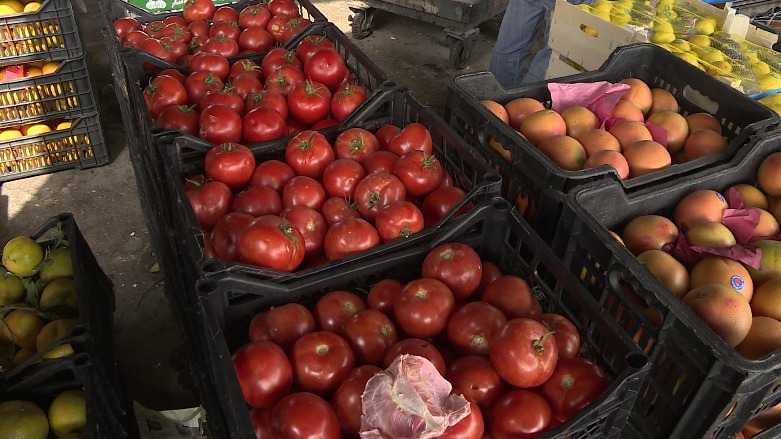Kurdistan Region traders look to Turkey, Syria after Iran bans select exports

ERBIL (Kurdistan 24) – Shopowners from the Kurdistan Region were forced to find new markets from which to import fruits and vegetables in neighboring Turkey and Syria after prices spiked over the last two weeks amid Iran’s ban on exports.
In late September, local traders were prohibited from importing select Iranian foodstuffs after Tehran announced it was halting the trade of fruits and vegetables to outside markets.
As the US’ economic and political pressure on Tehran intensifies, the country’s rial maintains its historic low point, losing nearly 70 percent of its value in a year, making foreign purchases of Iran’s goods more attractive and causing shortages domestically. Many essential products have tripled in prices since March.
Shortly after the trade ban, businesspersons from the Kurdistan Region turned to Syrian and Turkish markets to fulfill local demand, which the region’s production regularly fails to meet. For a couple of weeks, prices almost tripled as a result of a lack of imports.
“Now tomatoes have fallen [back] from [its two-week-high] 2000 IDQs to 500 [roughly USD 1.7 to 0.43] per kilogram,” a grocery store owner from Erbil told Kurdistan 24 on Monday.
Similarly, traders replaced Iranian tangerines and other citrus fruits with Turkish and Syrian imports, substantially reducing prices for consumers.
Weak domestic production of essential goods – a reason for which is the underdeveloped agricultural sector and the lack of a modern supply chain system to facilitate trade – have left the Kurdistan Region’s markets volatile as regional politics could disrupt steady supplies.
Editing by Nadia Riva
(Additional reporting by Kurdistan 24 correspondent Dina Fareeqi)
